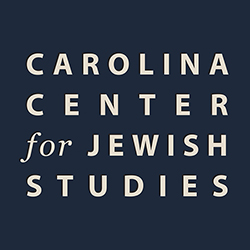Grad Student Profile: Tara Jordan
Keeping stories alive: Documenting a disappearing culture through music
The Center, and one of its affiliated grad students, were recently featured in a university campaign magazine, showcasing the importance of student support funding received during the campaign. Thanks to many generous donors, the Center can support its grad students throughout their years at Carolina, helping create the next generation of faculty and scholars in Jewish studies.
Tara Jordan’s research illuminates the role that music played in the cultural life of the Monastirli Jewish community from 1912 until 1943. To aid her work, Jordan — a doctoral student in musicology — received research grants from the Carolina Center for Jewish Studies.
Jews had lived in Monastir, in present-day North Macedonia, since Roman times. The area’s Jewish population increased in the 1500s when many Jews fled the Spanish Inquisition. Beginning in 1941, Bulgaria — on behalf of the Nazi regime — occupied Monastir. In 1943, Bulgaria deported all Monastirli Jews to Treblinka, a concentration camp.
“Monastir was absolutely decimated,” Jordan said. “Percentage-wise, 99 percent of the community was killed. Then the Bulgarian army destroyed the physical location. They bombed the synagogues; they tore down neighborhoods. Pictures and stories are really all that’s left of Monastir. And these songs. I feel a responsibility to document them. These people have touched my life.”
Before World War II, some Monastirli Jews had immigrated to the United States and Jerusalem. It is only because of these communities that there are any memories left of Monastirli culture.
In the summer of 2021, thanks to a Carolina Center for Jewish Studies Graduate Student Research and Writing Grant, Jordan took an extended research trip to Seattle and spent time among two Sephardic Jewish communities there. She interviewed community members and attended services. “That research was foundational and set me up for success,” she added.
In the summer of 2022, Jordan was again helped by a research grant, the Carolina Center for Jewish Studies Christopher Browning Holocaust Studies Research and Travel Grant. She traveled to Indianapolis, where a cluster of Monastirli had started a synagogue, Etz Chaim. Jordan attended services, visited congregants and looked through the synagogue’s archives. She found photos from 1910, when two families founded Etz Chaim, and more recent ones showing congregants dancing traditional dances and participating in talent shows.
Alan Cohen, the president of Etz Chaim, identified people in the photos, described the events and even sang some of the Judeo-Spanish songs he grew up hearing. This gave Jordan “huge insight into what kinds of things Monastirlis were singing after they came to the U.S.”
The grant also funded archival research trips to the Holocaust Museum in Washington, D.C., and to New York City. “These grants did so much for me,” Jordan said. “They have been a huge part of my dissertation research. I have partial drafts of two chapters already, and I would not be that far yet without these grants.”
Editor’s Update: Jordan also received support for summer 2023 research in Bitola, North Macedonia, and holds a Dissertation Completion Fellowship from the Center for 2023-2024, giving her a full year of support so she can focus on research and writing her dissertation.
By Claire Cusick ’21 (MA). Illustration by Christina Berkowitz. Initially published in UNC Campaign magazine and reprinted with permission.

